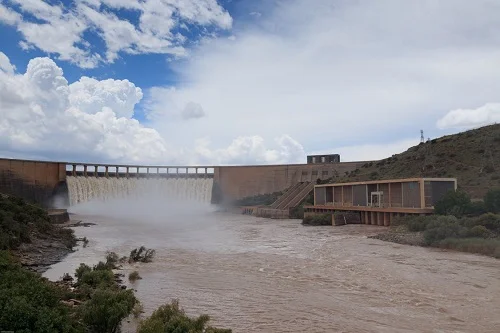Índice
When we read the term "Hydraulic Engineering," it's easy to understand what the field entails. This branch of civil engineering focuses on the design and study of systems related to water. Professionals in this field can develop their careers in various sectors.
Given the many areas where water management and utilization are essential, it is important to understand more about the engineering focused on this. In this article, we will cover everything you need to know about this field of engineering and the education required to pursue a career in it.

To fully understand hydraulic engineering and its history, we need to look back to around 4000 to 2000 BC. The earliest evidence of this field comes from the Egyptians and Phoenicians, who addressed issues related to water resources during this period.
Regarding hydraulic structures, the Assyrian Empire is known for creating some of the earliest examples in the 9th century BC. Additionally, the Romans made significant contributions to water management, developing advanced systems for water utilization and channeling, such as sewage systems and aqueducts.
Given its history, the field of engineering we are focusing on can be defined as the discipline responsible for designing works that help in the utilization of water. Additionally, it involves the construction and maintenance of hydraulic infrastructure.
Hydraulic engineering is essential for the optimal management and utilization of water resources. As mentioned, it is required in various areas. For this reason, it is divided into several branches. Here, we specify which ones:
There are many reasons why hydraulic engineering is an excellent academic choice. One key reason is that professionals in this field help address a global need. Due to population growth and climate change, effective water management and distribution have become crucial.
Hydraulic engineering is also highly relevant to sustainable development, as it involves practices that conserve water and minimize the environmental impact of hydraulic infrastructures.
As previously mentioned, hydraulic engineering is a branch of civil engineering, so pursuing a degree in civil engineering is one of the primary academic paths. Environmental engineering is another relevant field of study that can serve as a foundation for a career in hydraulic engineering.
Once you have a foundational degree, specializing in water management is essential. A master's degree focused on this area, such as water engineering, is highly recommended.
Additionally, complementing your university education with certifications in areas such as fluid mechanics is beneficial. Courses in hydrology, hydraulic modeling and simulation, and water system design are also valuable.
Hydraulic engineers have access to a variety of job opportunities across different sectors. In the private sector, they may work for companies offering engineering services or specialized consulting for hydraulic projects.
In construction firms, hydraulic engineers design dams, water distribution systems, and other structures. Public sector opportunities include roles in research institutions and industrial sectors.
The reasons previously described for studying hydraulic engineering also highlight its importance today. Additionally, this field contributes significantly to potable water supply, wastewater treatment, and disaster protection, particularly against flooding.
One compelling reason to recognize the importance of hydraulic engineering today is its role in adapting to climate change. Hydraulic engineers are able to design solutions to address the effects of climate change, including storms, droughts, and floods.
Due to the various roles they fulfill, hydraulic engineers play a crucial role in the development of infrastructure across different regions, benefiting multiple sectors. Consequently, they make a significant contribution to societal development and well-being, making this profession undoubtedly one with a bright future.

¡Muchas gracias!
Hemos recibido correctamente tus datos. En breve nos pondremos en contacto contigo.